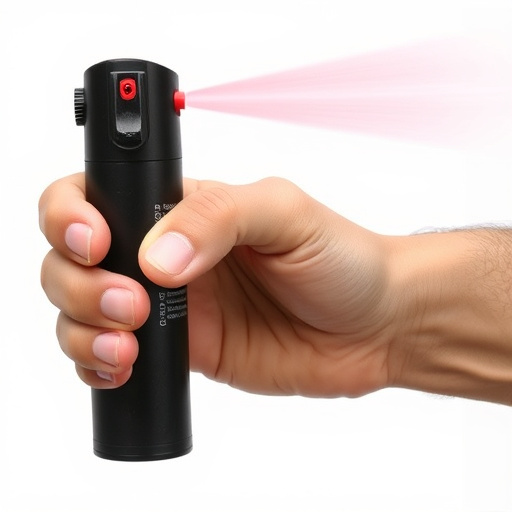Understanding how to legally carry pepper spray involves navigating complex regional regulations regarding possession, use, and storage. Each jurisdiction has unique rules about types, concentrations, and purposes of allowed sprays. Staying informed about local laws, including licensing or registration, proper training in application techniques, and secure storage practices is crucial for responsible self-defense and avoiding legal issues.
In today’s world, personal protection devices like pepper spray are essential tools for safety. Understanding chemical irritants, specifically capsaicin in pepper spray, is crucial for effective self-defense. This article navigates the legal considerations of carrying pepper spray, providing insights into regulations and permissions. We also delve into safe use guidelines, ensuring you know how to legally carry and deploy this game-changer in an emergency. Remember that knowing your rights and responsibilities is key to harnessing the power of pepper spray for personal protection.
- Understanding Chemical Irritants and Their Role in Personal Protection
- Legal Considerations for Carrying Pepper Spray
- Effective Use and Safety Guidelines for Pepper Spray Devices
Understanding Chemical Irritants and Their Role in Personal Protection
Chemical irritants, such as pepper spray, play a pivotal role in personal protection devices. These substances are designed to temporarily disable or deter aggressors by causing irritation and discomfort. Pepper spray, for instance, contains capsaicin, the active ingredient found in chili peppers, which when inhaled or made contact with eyes and skin, leads to painful inflammation and temporary blindness.
Understanding the legalities surrounding how to carry pepper spray is crucial for effective personal protection. Different jurisdictions have varying regulations on who can possess and carry such devices, as well as where and how they can be used. Knowing these laws ensures that individuals exercise their right to self-defense responsibly and legally. This includes understanding the recommended safe storage practices, permitted use scenarios, and any necessary permits or training required for legal carrying of pepper spray.
Legal Considerations for Carrying Pepper Spray
Carrying pepper spray for personal protection is a practical measure, but it’s crucial to understand the legal implications and regulations surrounding its use and possession. Different countries and regions have varying laws and restrictions on how and where individuals can legally carry pepper spray.
To know how to legally carry pepper spray, one must familiarize themselves with local legislation. This includes understanding the permitted types of spray, their concentration levels, and any restrictions on size or capacity. Some areas may only permit carrying pepper spray for self-defense purposes, while others might have specific requirements for licensing or registration. It’s essential to stay informed and comply with these laws to avoid legal repercussions and ensure the responsible use of personal protection devices.
Effective Use and Safety Guidelines for Pepper Spray Devices
Pepper spray devices, when used effectively and in accordance with safety guidelines, can be powerful tools for personal protection. To ensure their legality and optimal performance, it’s crucial to understand local regulations regarding how to legally carry pepper spray. Each jurisdiction has specific rules, so it’s essential to research and comply with these laws before purchasing or carrying any self-defense spray.
Safety comes first when employing pepper spray. Users should be trained in its proper application, practicing techniques for accurate targeting and minimizing over-spray. Storing the device securely and keeping it easily accessible is vital. Regular maintenance, including checking expiration dates and testing functionality, helps ensure the spray’s effectiveness. Always follow manufacturer instructions and guidelines provided by law enforcement agencies to maximize safety and legal carry of pepper spray devices.
Chemical irritants, like pepper spray, play a vital role in personal protection devices. Understanding their properties and legal considerations is essential for responsible usage. By adhering to effective use guidelines and staying informed about local regulations, including how to legally carry pepper spray, individuals can ensure they are prepared for potential threats while prioritizing safety.
